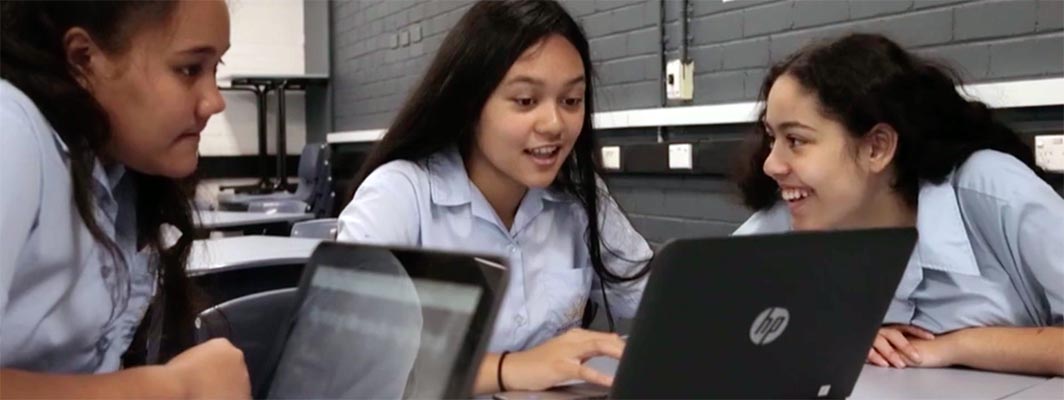
How do classrooms and schools integrate computational thinking into existing subjects? Explore examples of how computational thinking can appear across the curriculum for all ages in our latest video:
Rather than standalone classes, like computer science electives and AP courses, computational thinking leverages certain problem-solving strategies in order to amplify and enhance lessons in core content areas. The goal isn’t only to teach 21st century skills—it’s about leveraging those skills to enrich all learning opportunities. Our new video illustrates a few possibilities: mathematical reasoning in elementary school by creating algorithms; social sciences in middle school by working with data; and physical sciences in high school by using simulations.
Supporting Computational Thinking in K-12 Public Schools
Next Generation Science Standards, which are being adopted by many states and school districts, explicitly call for computational thinking as an essential practice for science learning. Computational skills and tools can also support and deepen other identified essential practices like working with data, and developing and using models.
With the generous support of Carnegie Corporation of New York, Digital Promise is excited to launch a pilot professional learning program with five school districts from the League of Innovative Schools to support middle school teachers integrating computational thinking into their science courses. Supported by Digital Promise coaches, teachers in this new program will learn together in a professional learning community and earn educator micro-credentials to recognize their new competencies. We are excited to begin sharing the resources that this project will produce to help science teachers everywhere integrate computational thinking into their work. To access new resources as they are released, subscribe to the Digital Promise Action Report newsletter.
We are also working closely with several school districts as they plan and implement pathways for learning computational thinking across their entire K-12 student experience. Funded by the National Science Foundation (NSF Award #1837386), our project “Developing Inclusive K-12 Computing Pathways for the League of Innovative Schools” will set out to design, study, and improve 12 school districts’ computational thinking pathways. This research-practice partnership will focus on addressing access and creating equitable learning experiences in computational education for all students.
How are you integrating computational thinking in your school? Share your insights in the comments.
For more on our perspective on computational thinking, read our report, Computational Thinking for a Computational World.